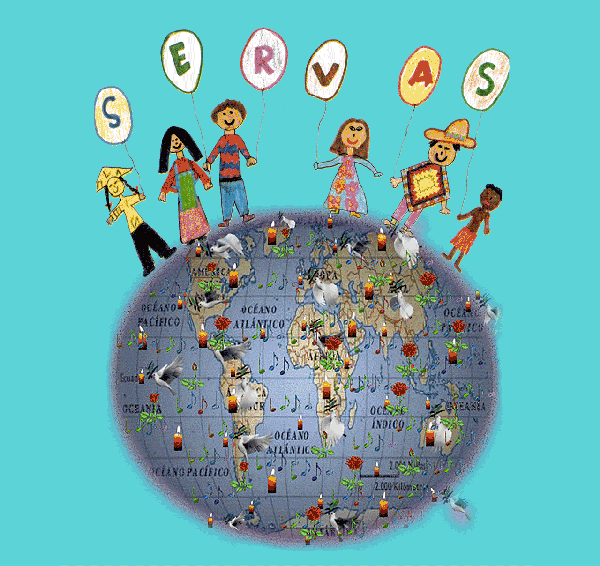TRAVEL REPORT
From Italy I write to a certain Mr. Thapalia, who appears on my list as the national secretary. I also write to two or three others. On arrival in Katmandu I learn that Mr. Thapalia is no longer the national secretary, a post now held by a certain Mr. Javanmitra, a university professor. The reason for Mr. Thapalia's resignation is given as his many political com-mitments since he was elected to Congress in the 1990 elections, the first in Nepal's history.
So I ring Mana Tapa who suggests meeting that afternoon. She also informs me that a meeting for all the members of Amnesty International, many of whom also belong to Servas, has been arranged for 6 p.m. and I am invited along.
Mana Tapa tells me she is married to an aeronautical engineer and has children but despite her family commitments she manages to cope with being deeply involved in a women's organisation which, in collaboration with the government, is working to improve the social and civil status of the Nepalese women, especially those belonging to the lower classes. She goes on to tell me about the discrimination and the injustices of which these women are victims. For instance, she says, according to Nepalese traditions – traditions which are looked upon as laws and never questioned – a woman's husband must be chosen by her parents when she is still a young child and the wedding takes place when bride and groom are very young. The girl cannot choose not to marry and if the required dowry is not paid in full, the husband's family make the young bride's life a nightmare. What is more, the wife is never allowed to express her own ideas or opinions; she lives her life closed in her house and when there are guests she does not sit down at table with the everyone else. . . I seize the opportunity to enquire whether traditions like that of kissing her husband's feet each day, bathing them and then drinking the dirty water are still observed: she says 'yes'.
Among other things, a recent survey highlighted the fact that Nepal, Iran and Bhutan are the only countries in the world where a woman's life expectancy is less than that of the man.
There are around a score of people at the meeting and more than half are also members of Servas; among the latter is Javanmitra who is also leader of the Amnesty International group. I ask him what he thinks of the situation in Nepal. He says that undoubtedly there is now greater freedom of speech and of action, but the country's economy is in such a disastrous state that it will take many years to bring it back to an acceptable level. We go on to talk about a few projects for foreign aid that I intend looking into.
The Servas member who is to be my host is a geologist who is a state employee. His name is Sailendra Shresta. He turns out to be also father of four children and for the moment they are entirely in his care as his wife is away in Japan for fifteen months attending a professional specialisation course. He tells me that he, too, would like to go and work in Japan for two or three years and that he has already applied to do so. The money he could save by doing so would pay for his children's studies. His salary here is insufficient even to procure adequate food for all the family. When he shows me the accounts he carefully keeps each month of credit and debit, income and expenditure, it is clear that the former are inferior to the latter. I can't help but think how marvellous these people are, people who are wrestling with a thousand difficulties in order to make ends meet and yet take you in and share what little they have with you.
However, the strangest Servas experience I had was one in Tansen, a small town about two kilometres off a well worn tourist route, but which no tourist ever dreamed of making a detour to visit.
I arrive there on a broken down local bus and in the filthy but delightful Siddharta Hotel, who should I see?
Ante Tokic, 23 years old, Croatian Servas, arrived by bicycle from Solin, his home town. A naval engineer, almost two metres tall and fleeing his own war-torn country. His brother also on the point of leaving the country to seek his fortune in the United States. In fact they planned to meet up again there. I can imagine the despair of this and many other families, obliged by circumstances to split up. We spend three days together taking trips into the hills around Tansen and along the banks of the Kali Gandaki.
The morning of the fourth day we say our farewells; he, hoisted up on the roof of the bus, bound for Katmandu; I remain waiting for the bus for Pokara to be repaired.
Often when I catch news of his war-torn country on the T.V., my thoughts fly back to him. Many Italian Servas members, on reading these few lines, will recognise him and remember him.
It was from us that he learned about Servas and decided to join at once, thus bringing the numbers of Croatian members to two. He had visited our country on several occasions and he remembered it with great yearning.
My Nepalese experience as a Servas traveller was limited, but, although brief, greatly enriched me.
P.S. I have put together a travelogue (around 50 folders) which is available to anyone intending to travel to this stupendous country.
Graziella Martina
Pinerolo (TO)




